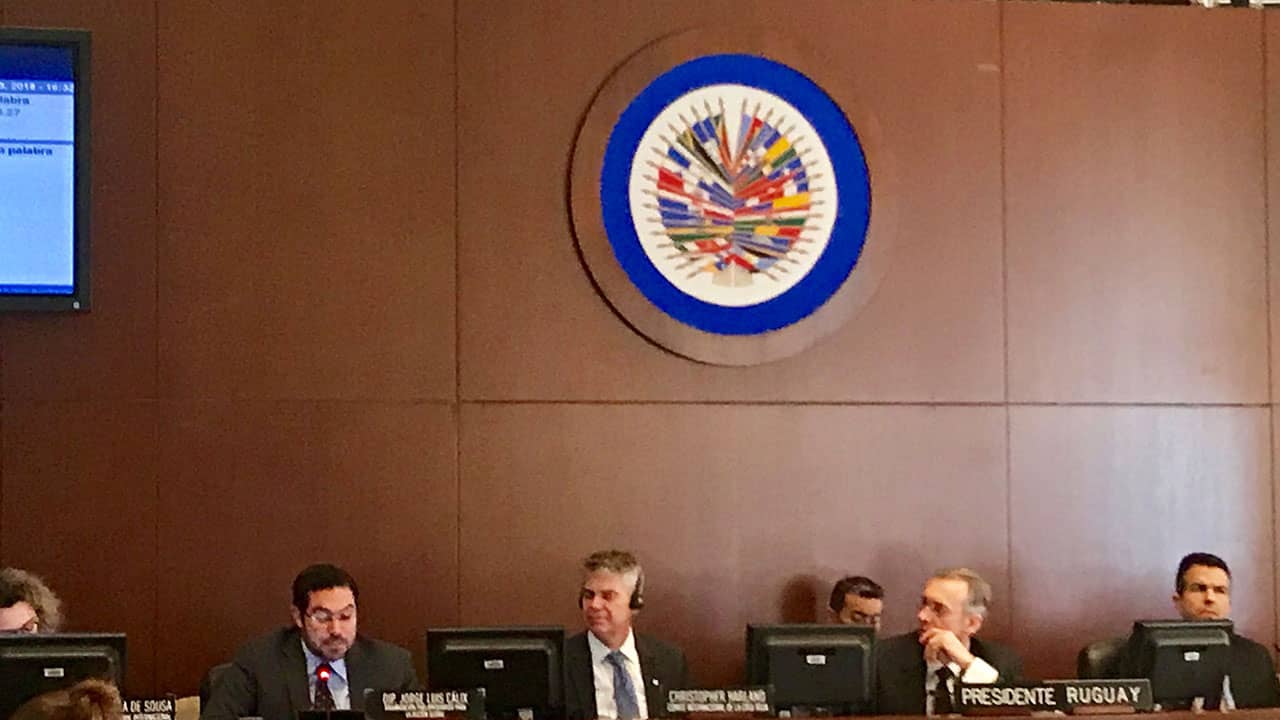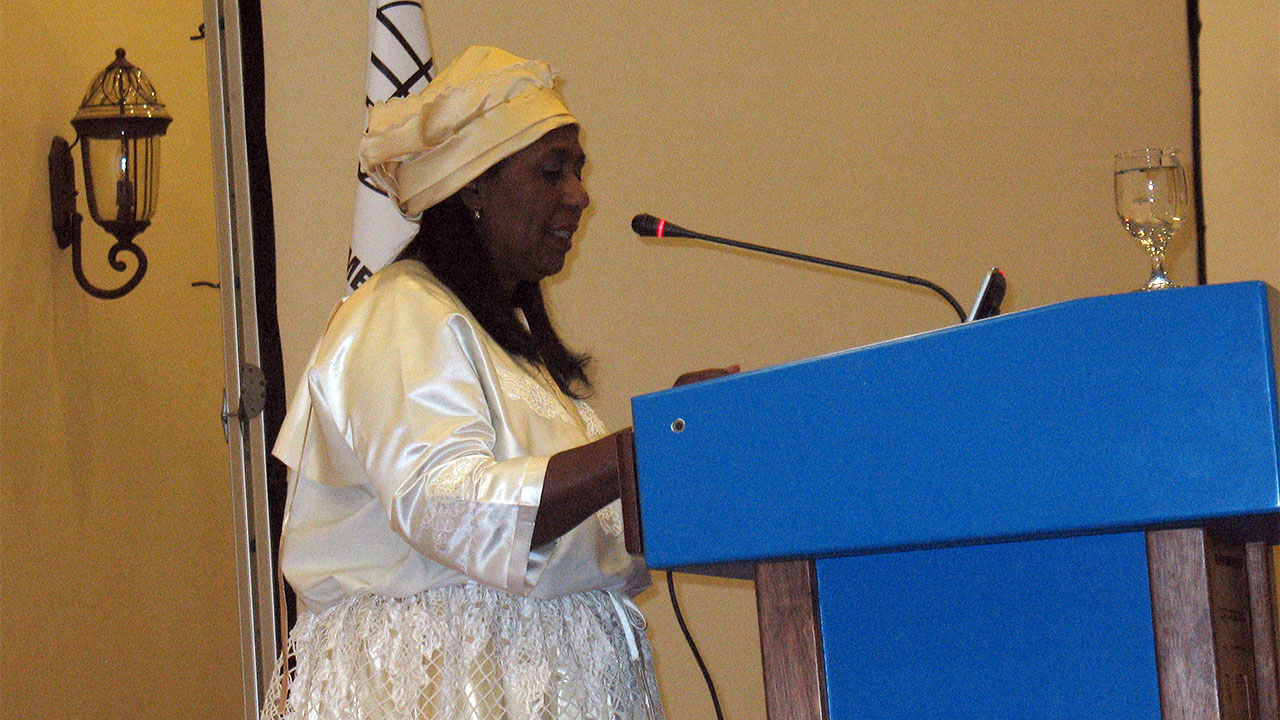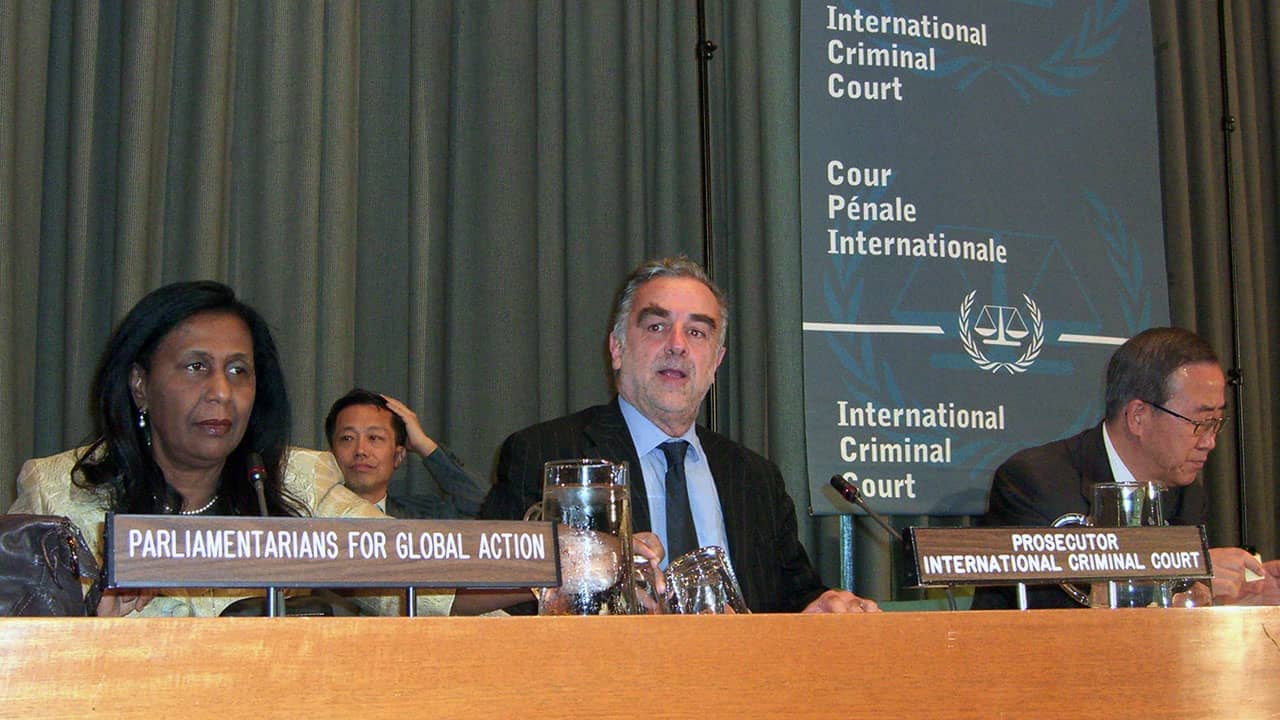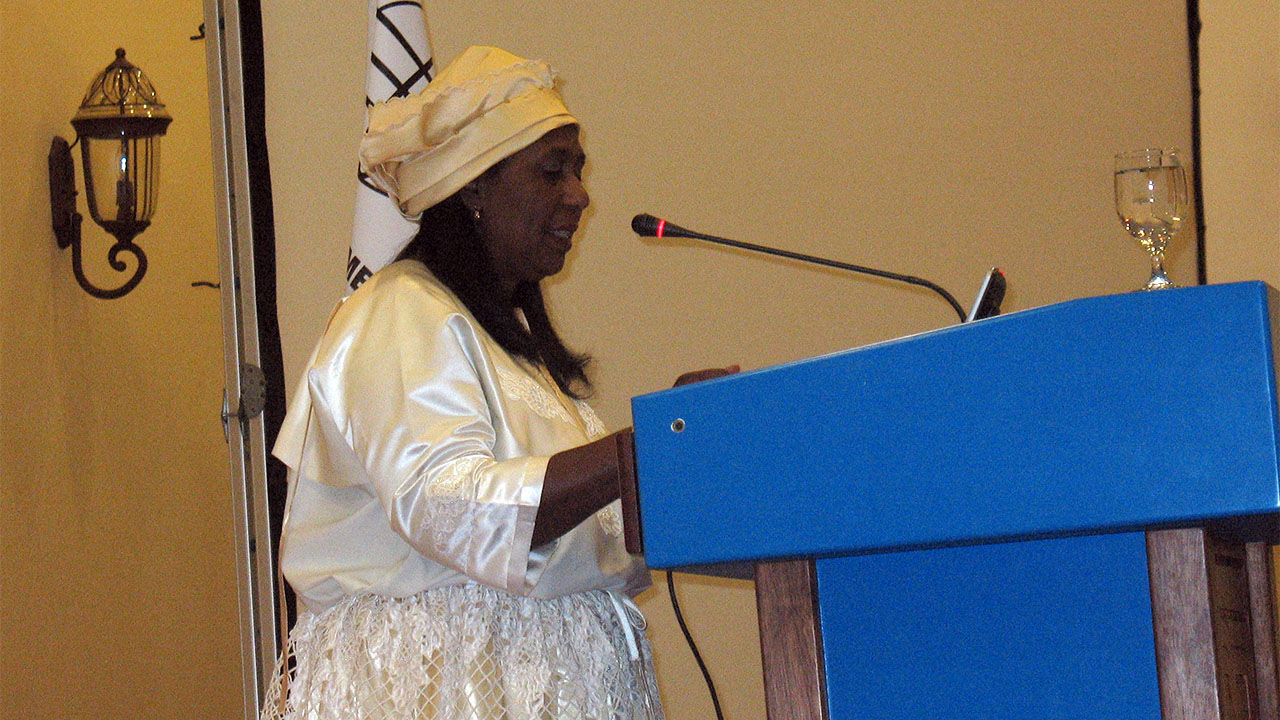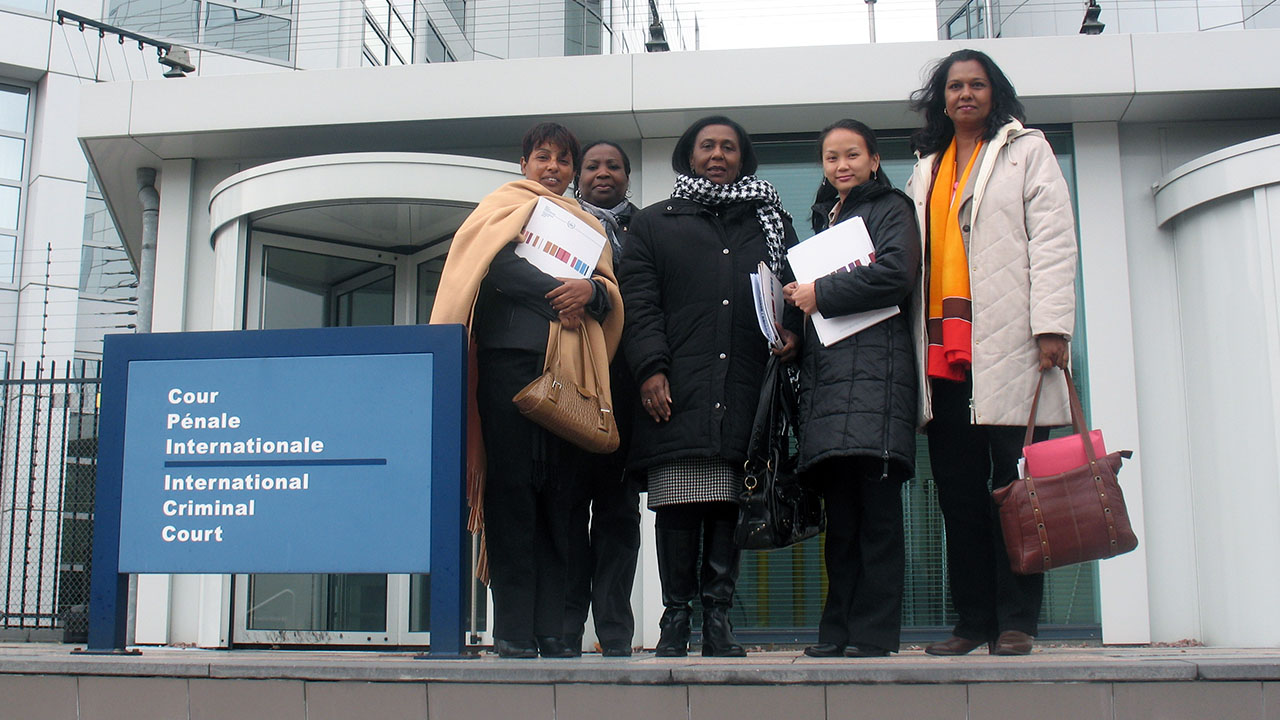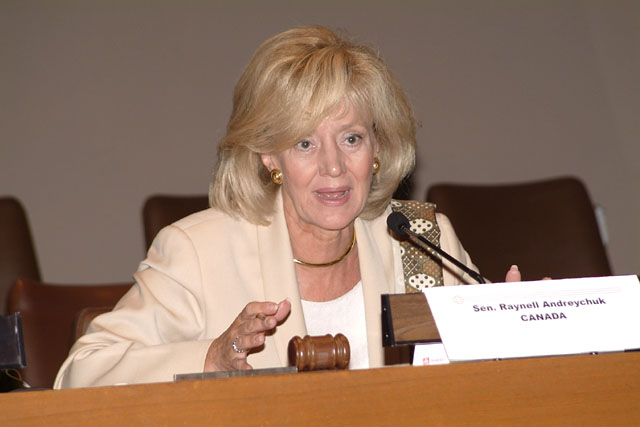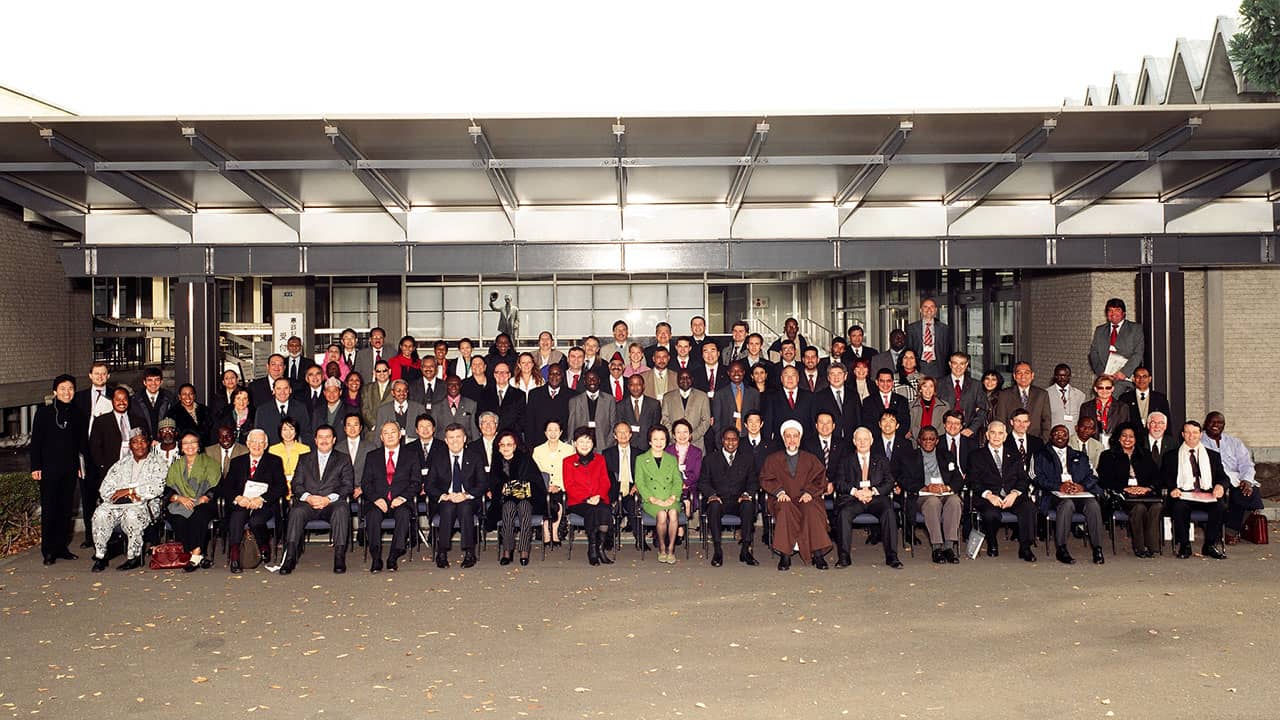Since March 2004, PGA Member Dr. Ruth Wijdenbosch has led the work on the Campaign for the Rome Statute of the ICC within the National Assembly of Suriname. The efforts culminated in Suriname’s accession to the Rome Statute in 2008. Since then, PGA has facilitated technical assistance to the government of Suriname in preparing a comprehensive draft bill to implement the Statute.
On 7 and 8 November 2007, the visit of a delegation of legislators from Suriname to the ICC and other institutions in The Hague paved the way for the ratification of the Rome Statute. The visit aimed to provide the right opportunity to discuss the current challenges of the ICC and demonstrate the support of officials of the Court and the Dutch authorities towards Suriname joining the ICC system. The meetings in The Hague also allowed participants to devise a strategy to continue working with their government to ensure that Suriname not only accedes to the Rome Statute but also promotes the ICC system, especially in the Caribbean region.
In addition to this visit, on 6 and 7 June 2008, the National Assembly and PGA held the Paramaribo Regional Seminar on International Justice and Security and the Role of the ICC to formalize the long accession process and enhance the role of Parliamentarians in the whole region. The President of Suriname, the Ministry of Foreign Affairs, and the Ministry of Justice participated in the Seminar. As a result of the event, 44 members of parliament from 17 countries adopted the Paramaribo Plan of Action.
On 1 December 2014, in a meeting held with former ICC President San Hyun Song and other representatives of the Court, a bi-partisan Surinamese parliamentary delegation of PGA members led by Dr. Ruth Wijdenbosch, Vice-President of the National Assembly and PGA Board Member (2014), exchanged information about the complementarity of the ICC with national jurisdictions. During the discussions, ICC officials emphasized that the domestic implementation of the Rome Statute's legal principles protects the primacy of national jurisdiction and strengthens the national criminal justice system. MP Hugo Jabini, President of the National Assembly’s Committee on the revision of the Criminal Code in Suriname and PGA Board Member (2015), requested more information from the ICC to facilitate the implementation of the Rome Statute crimes and general principles in the new Criminal Code which was thereupon adopted on 5 March 2015 including some Rome Statute provisions.
The involvement of PGA members remains active in continuing to promote the implementation of the Rome Statute at the national level. PGA is organizing a Surinamese parliamentarians' visit to the International Criminal Court in May 2024.
| Signature, Ratification of/Accession to the Rome Statute of the ICC | |
|---|---|
| Accession Date: | 15 July 2008 |
| Amendments to the Rome Statute | |
|---|---|
| Ratification of the Kampala Amendment to Article 8 of the Rome Statute on war crimes [poison and expanding bullets in NIAC] (2010): | No. |
| Ratification of the Kampala Amendment to the Rome Statute on the crime of aggression reflected in Article 8 bis (2010): | No. |
| Ratification of the Amendment to Article 124 of the Rome Statute (2015): | No. |
| Ratification of the Amendment to Article 8 of the Rome Statute on war crimes [biological weapons] (2017): | No. |
| Ratification of the Amendment to Article 8 of the Rome Statute on war crimes [blinding laser weapons] (2017): | No. |
| Ratification of the Amendment to Article 8 of the Rome Statute on war crimes [non-detectable fragments] (2017): | No. |
| Ratification of the Amendments to Article 8 of the Rome Statute on war crimes [starvation as a war crime in NIAC] (2019): | No. |
| Adoption of implementation legislation of the Rome Statute of the ICC | |
|---|---|
|
Suriname lacks full implementation of the principles and core crimes under the Rome Statute of the International Criminal Court. In the amended version of 2015, some references to the Rome Statute were included in the Criminal Code. Article 5.1 specifies that the Code applies to Surinam nationals and aliens in case they are committing crimes against the administration of justice of the ICC as meant in Art. 70.1 of the Rome Statute. Furthermore, Art. 96 specifies that the crimes as defined in the Rome Statute shall not be subject to any statute of limitations. Lastly, the Explanatory Memorandum accompanying the revised Criminal Code included part of the Preamble of the Rome Statute, “recalling that it is the duty of every State to exercise its jurisdiction over those responsible for international crimes.” |
|
| Cooperation Agreements | |
|---|---|
| Ratification of Agreement on Privileges and Immunities of the Court (APIC): | No. |
| Signature of Agreement of Enforcement Sentences with the ICC: | No. |
| Signature of Agreement of Interim and Final Release with the ICC: | No. |
| Signature of Bilateral Immunity Agreement with the USA: | No. |





